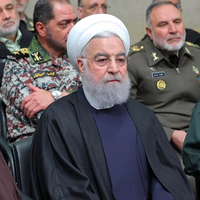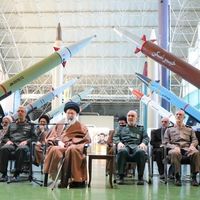10,000 Villages Across Iran Without Drinking Water
Ten thousand villages in Iran are without drinking water, with about 670 people in Kerman province facing “serious” water scarcity.
The Iranian energy minister Ali-Akbar Mehrabian, who is accompanying President Ebrahim Raisi in his trip to the central province of Kerman, made the remarks as residents of a large number of cities in the province are procuring water via water tankers stationed around the towns while the weather temperature is over 40 degrees Celsius (104 in Fahrenheit scale).
He claimed that the drinking water problem has been elevated in 3,000 villages and the issue will be resolved in the 10,000 remaining villages by the end of this Iranian year (March 19, 2024).
Iran has huge numbers of villages in remote rural areas who depend on support for survival. Although on decline, the rural population is roughly about 21 million people, a little less than a fourth of the country's population.
During his trip to the province, Raisi also inaugurated several water projects, which he promised would solve the problem in Kerman.
Water issues have been the main topic of Raisi’s visits to Iranian provinces in recent months, taking him to Sistan-Baluchestan and Khuzestan provinces that have very little clean water and temperature as high as 51 degrees (about 124 in Fahrenheit).
Earlier in June, the water was also out in the capital Tehran for several days with tankers distributing water to residents.
In January, CEO of Iran Water and Wastewater Company, Atabak Jafari, issued a warning saying that 270 cities and towns are suffering from acute water shortage as water levels at dams have dropped to critically low levels.
As drought persists across Iran, more underground water is exploited for irrigation, depleting natural reservoirs formed during thousands of years. Old and unregulated irrigation methods, as well as an aging urban water distribution infrastructure compound the shortage.
An inefficient agricultural sector, overgrazing of rangelands and forests, aggressive over-extraction of groundwater resources, and most importantly the regime’s mismanagement are among the main causes of water bankruptcy in Iran.







